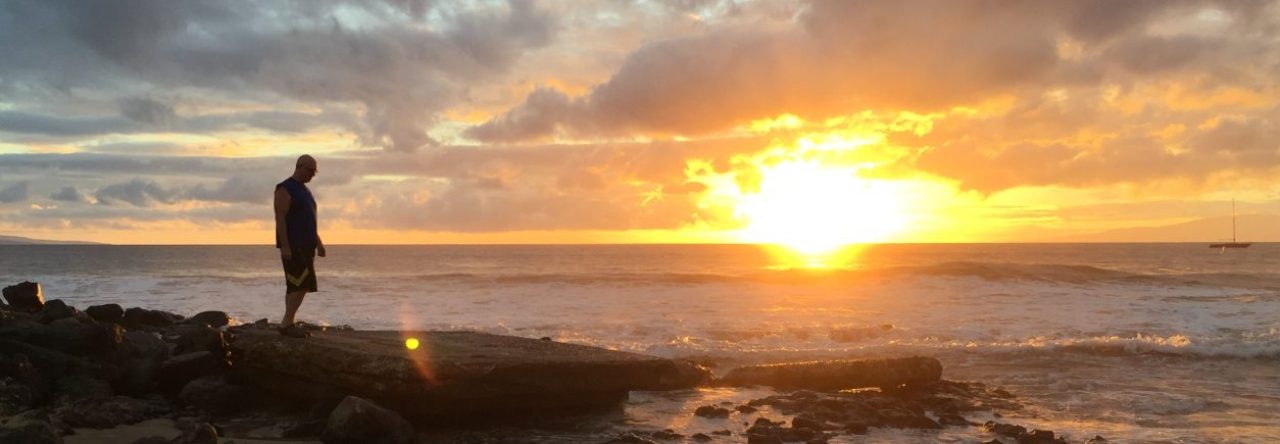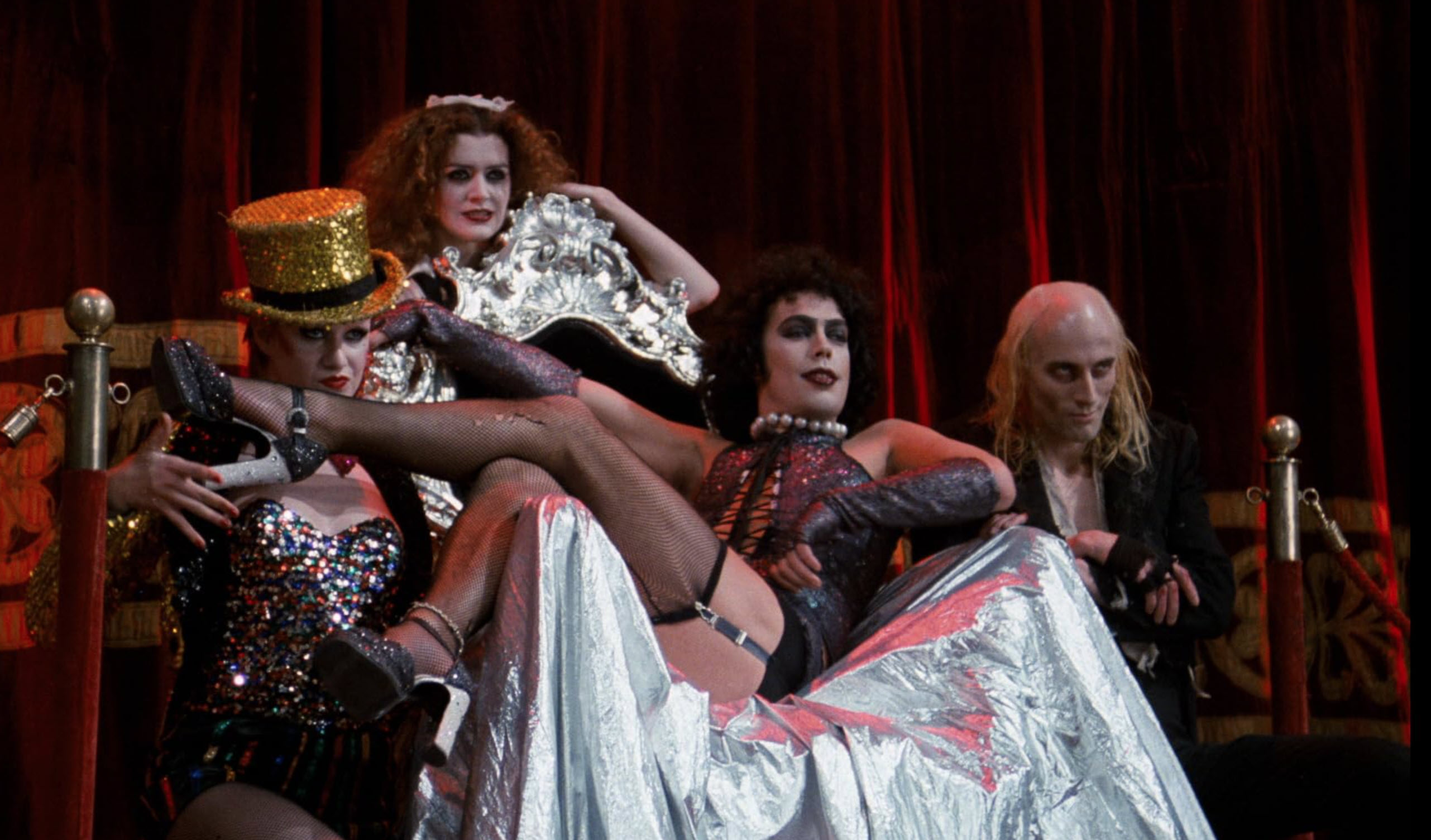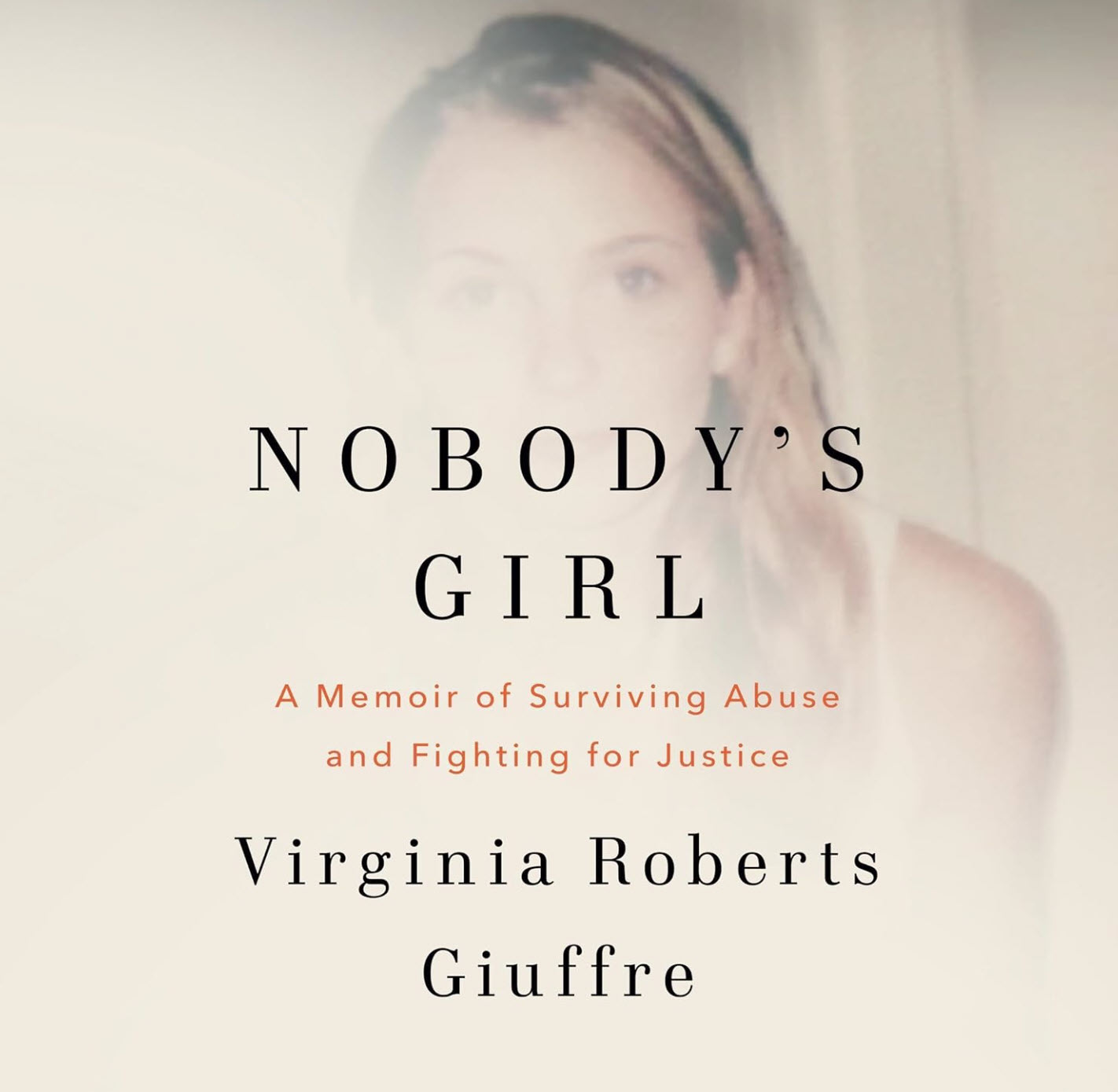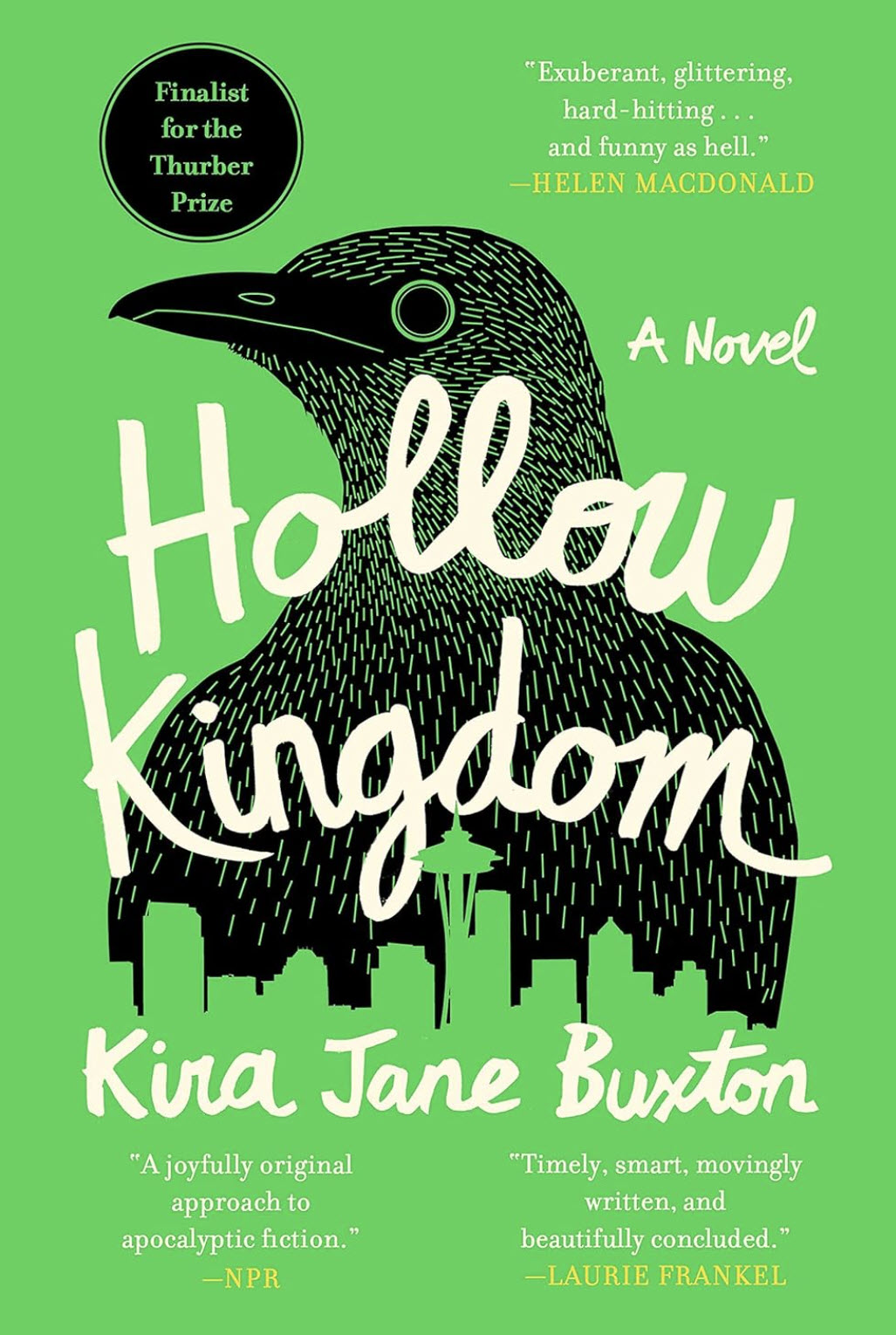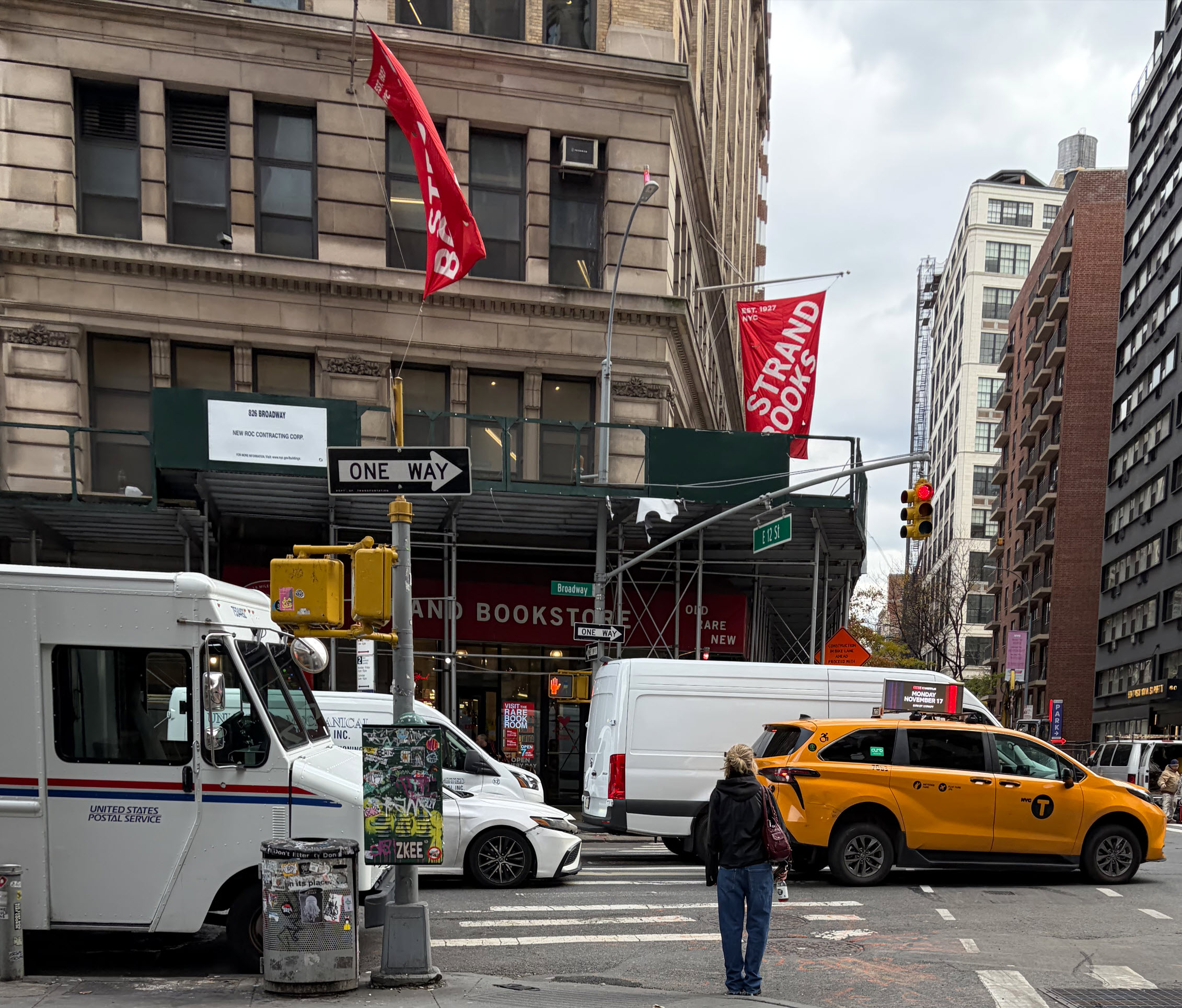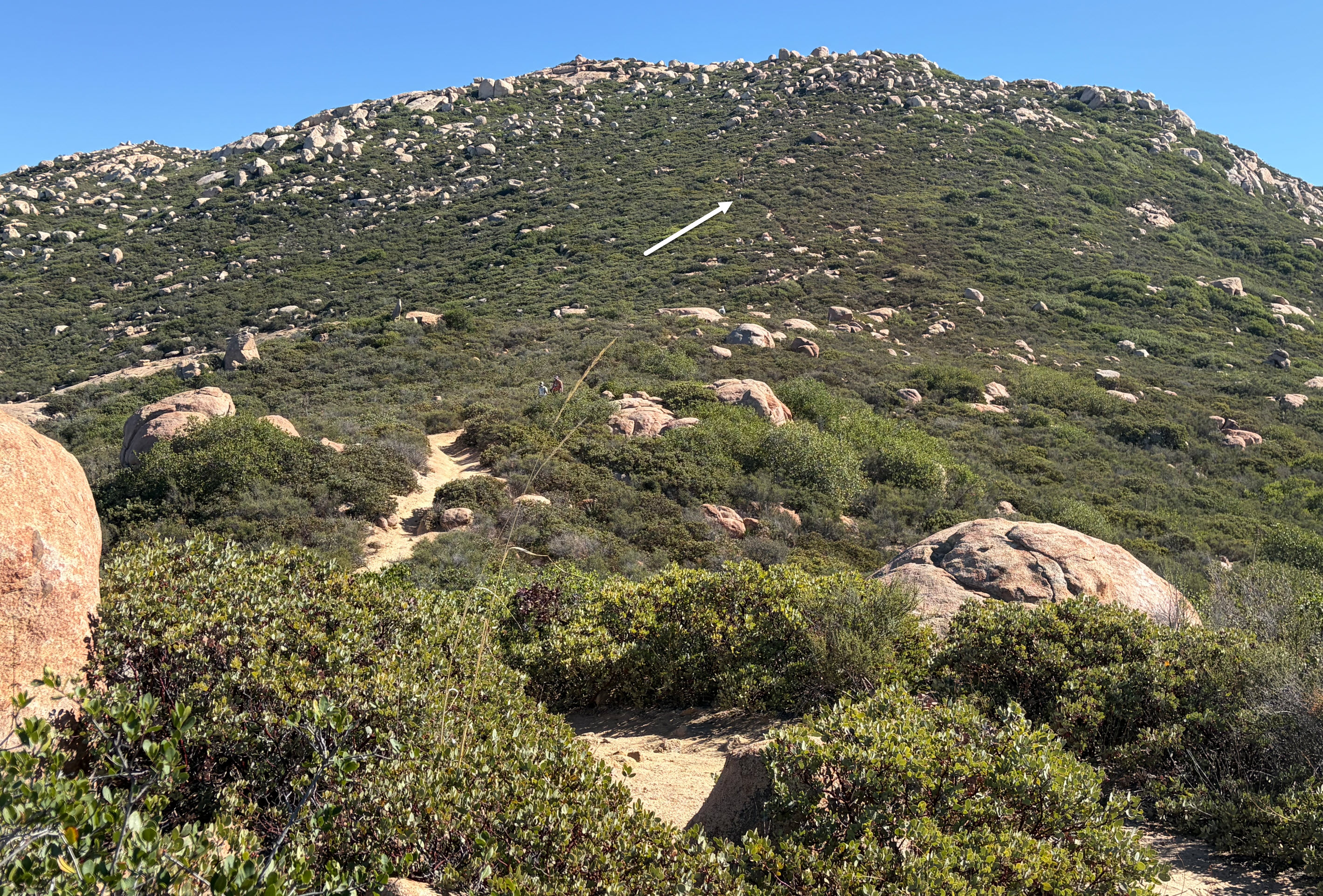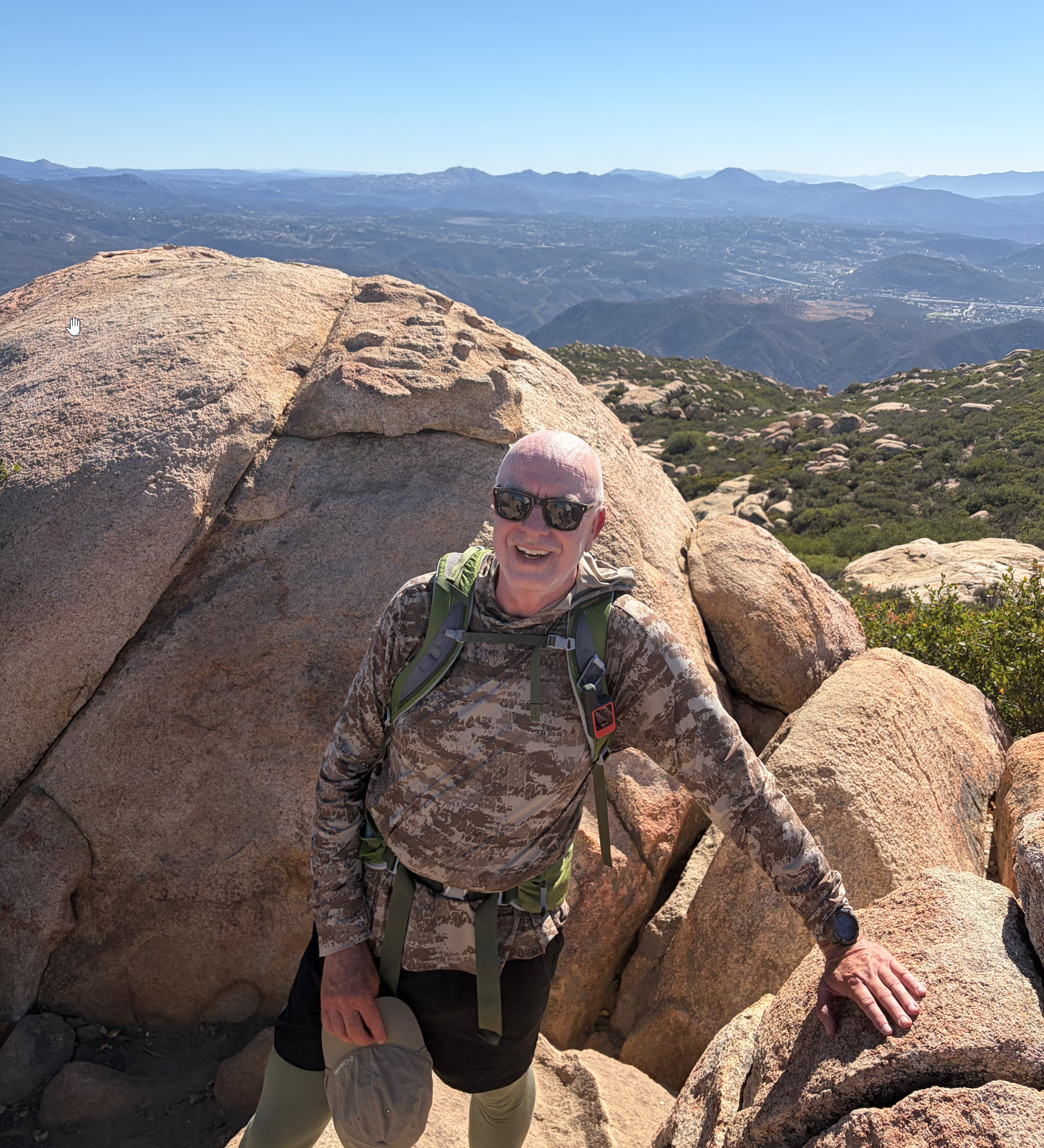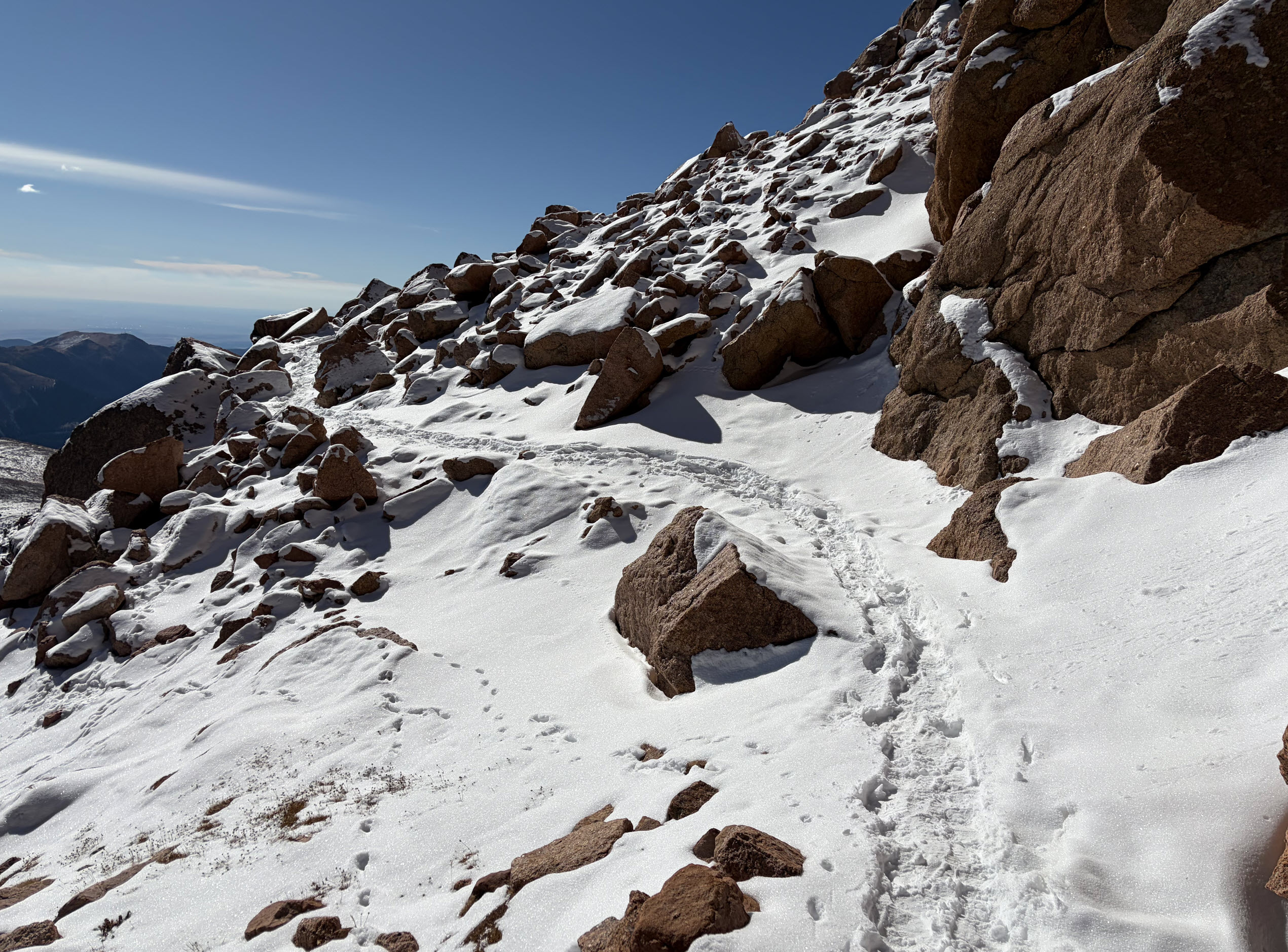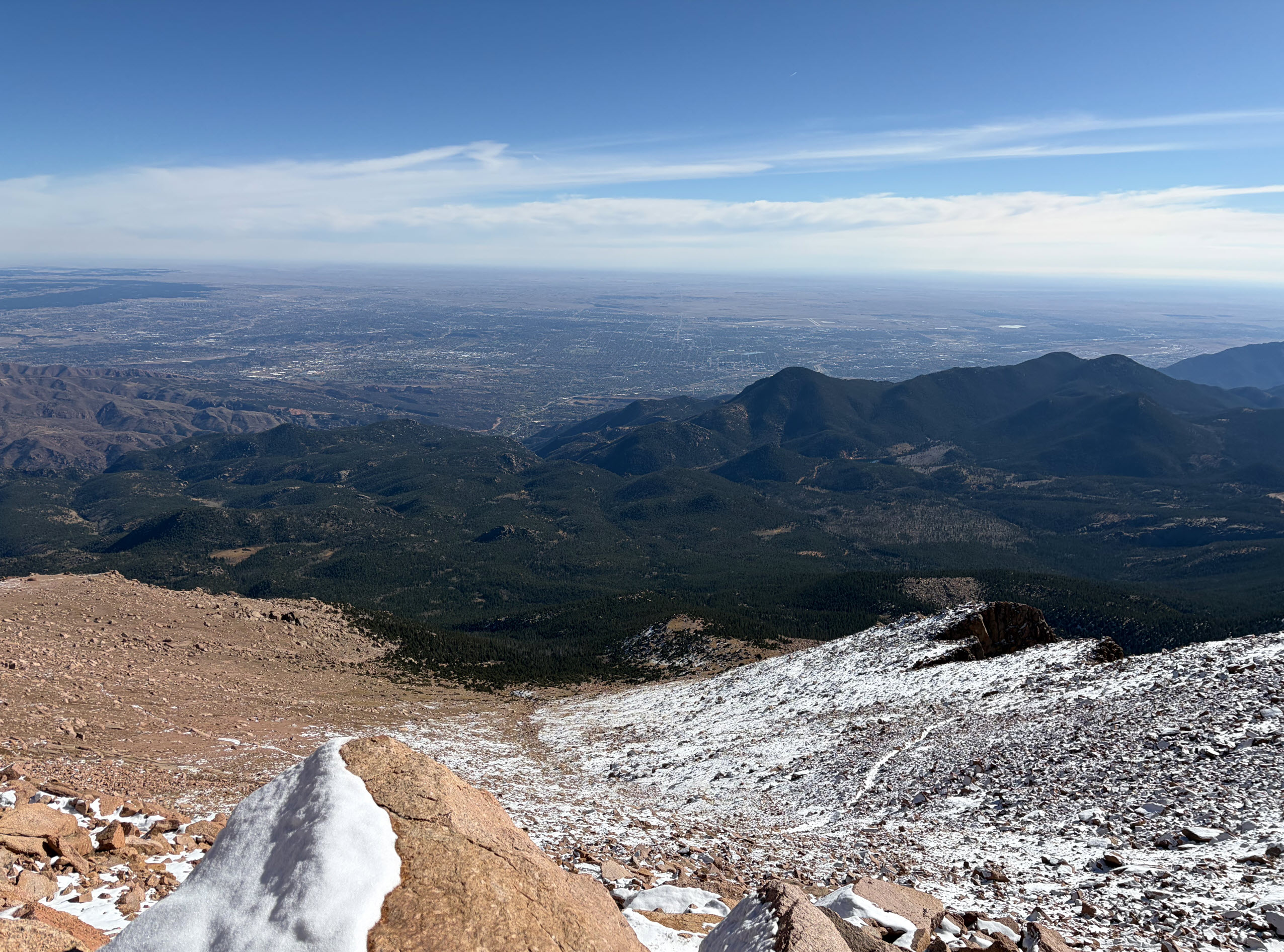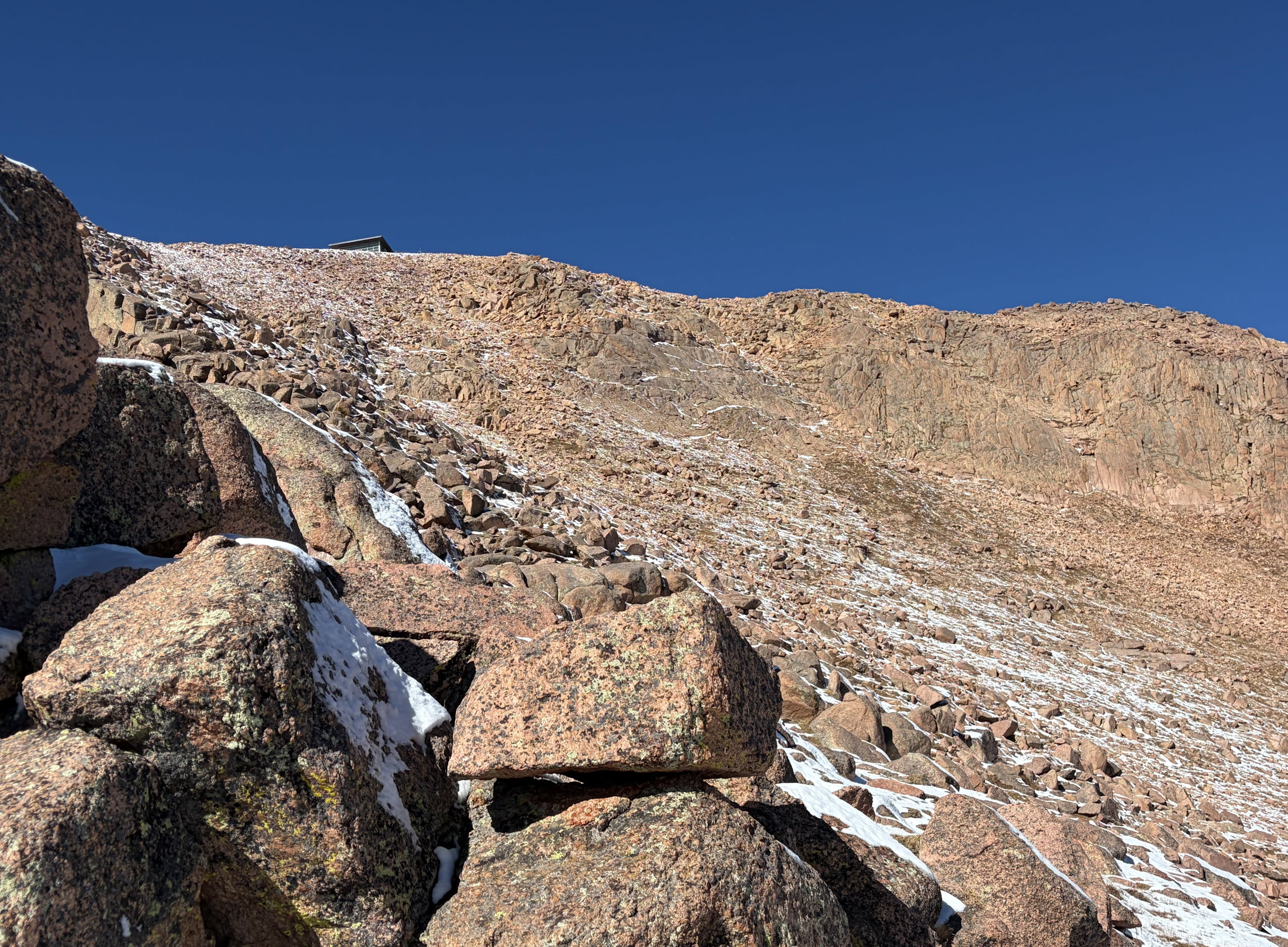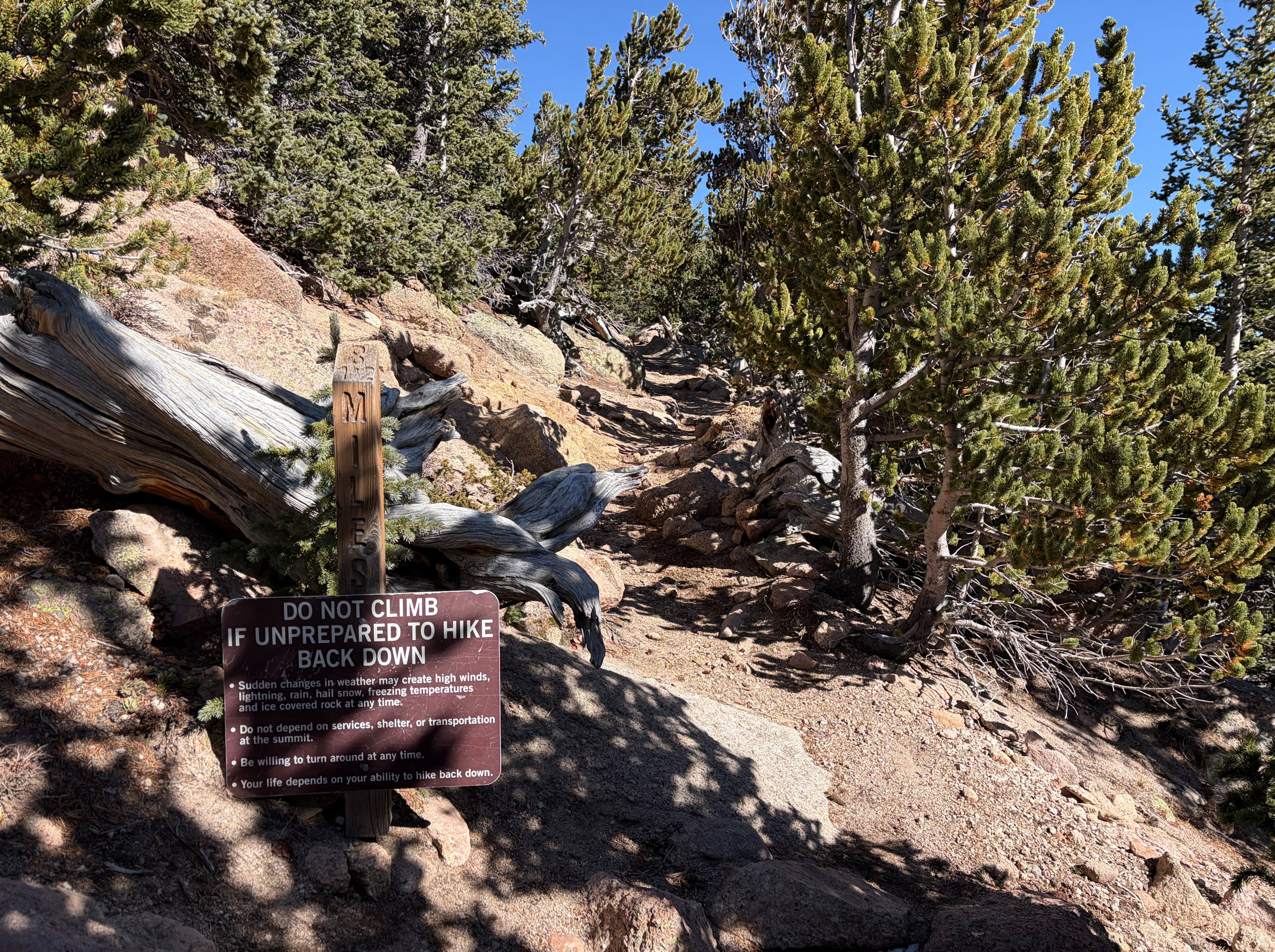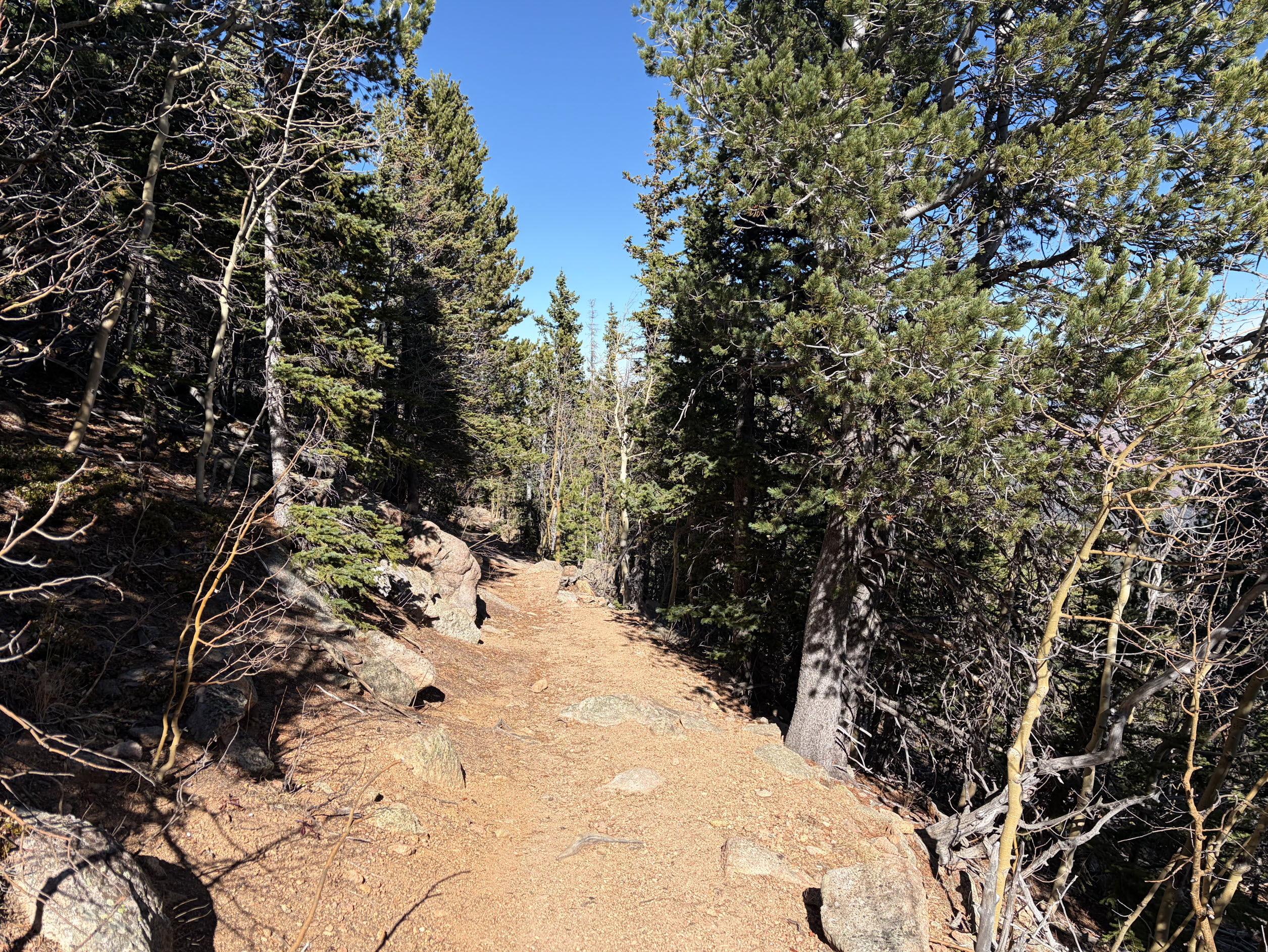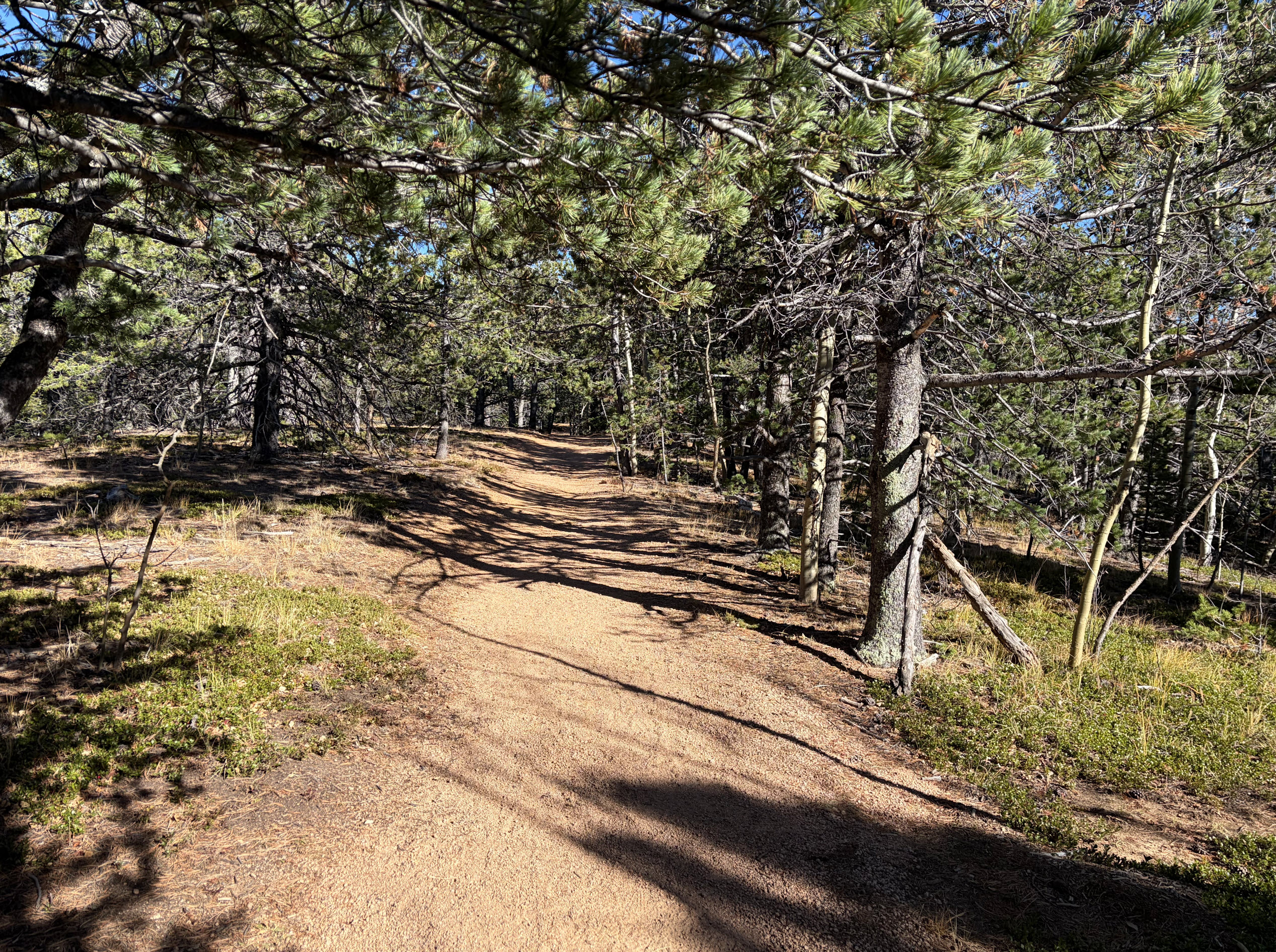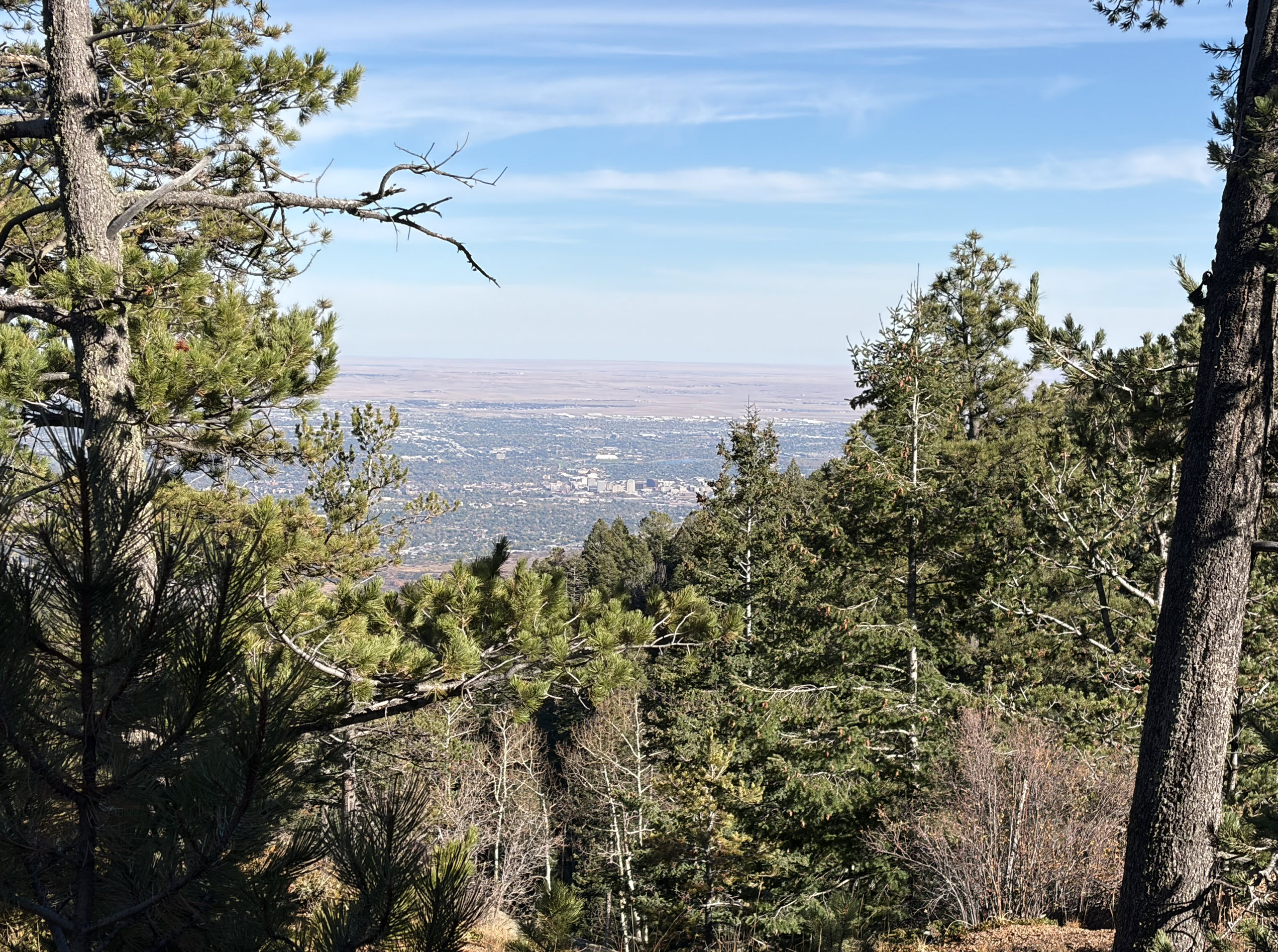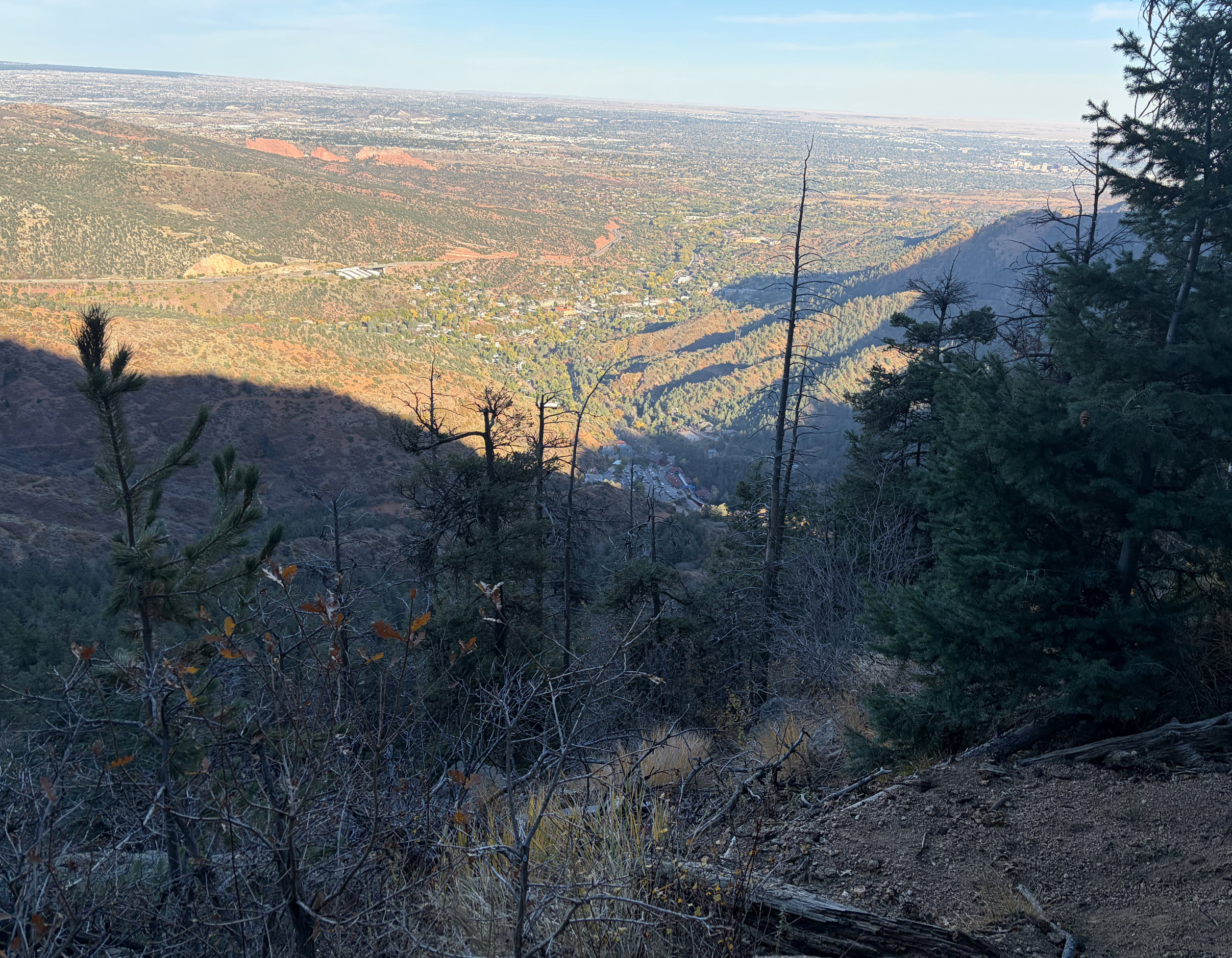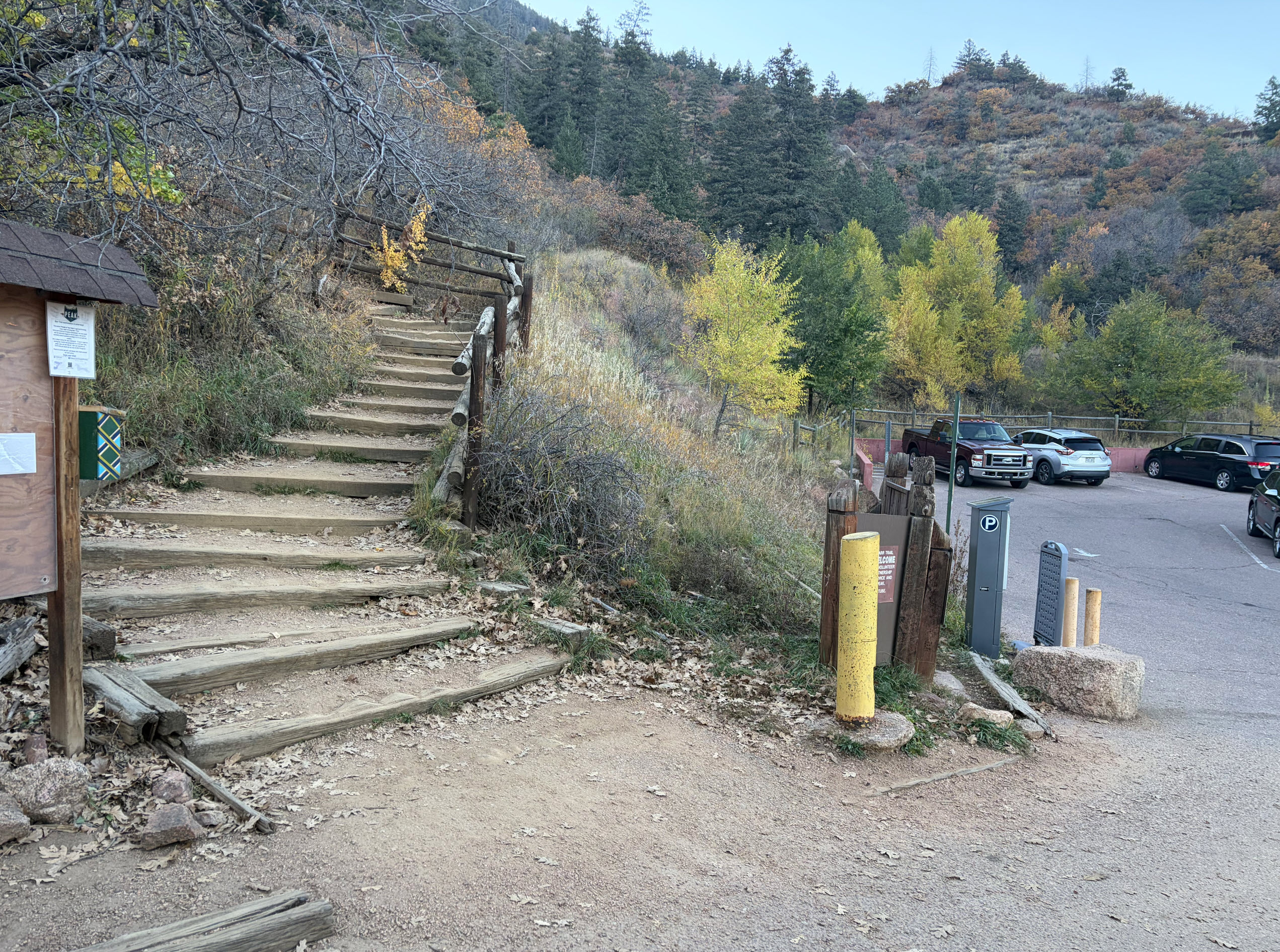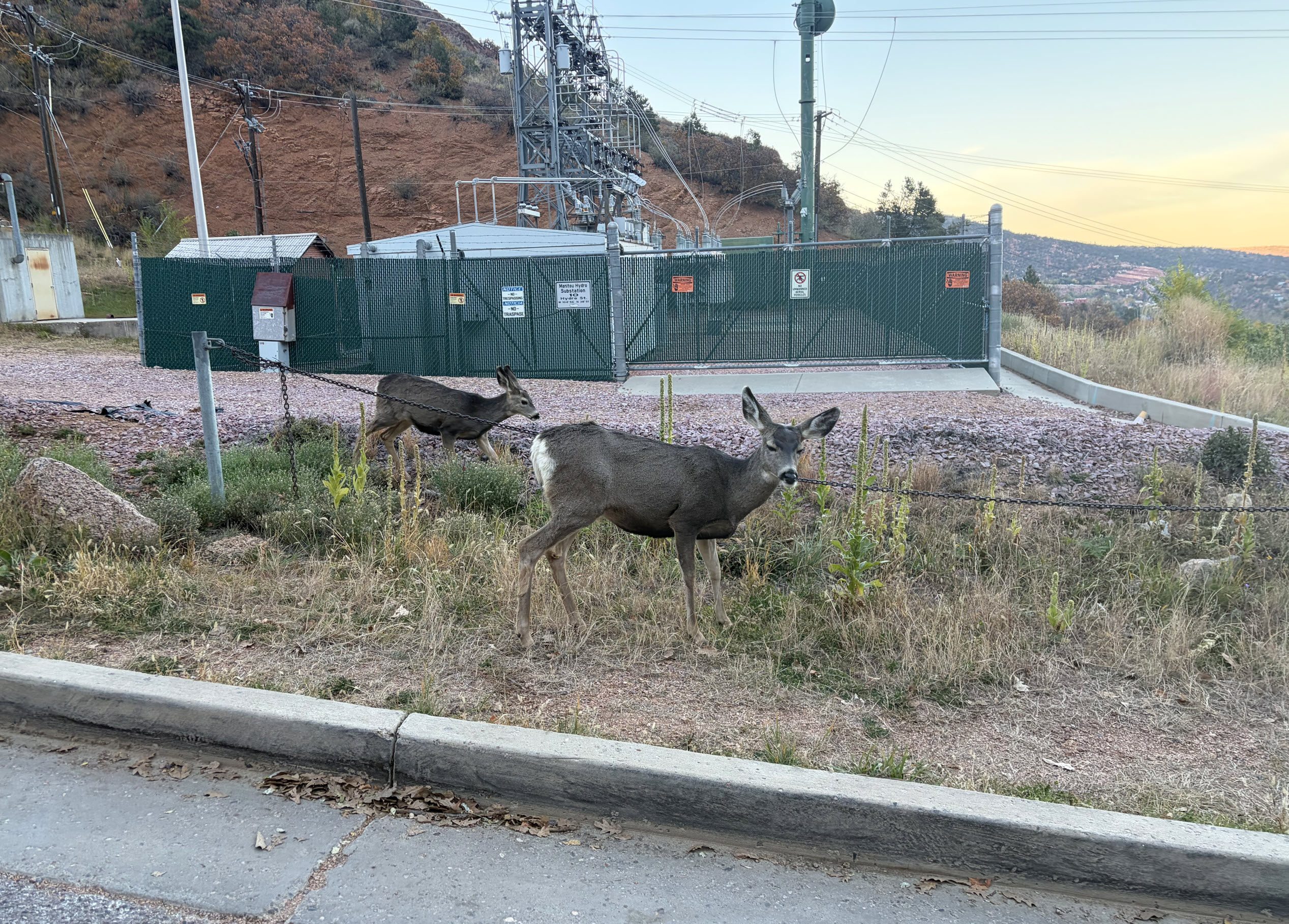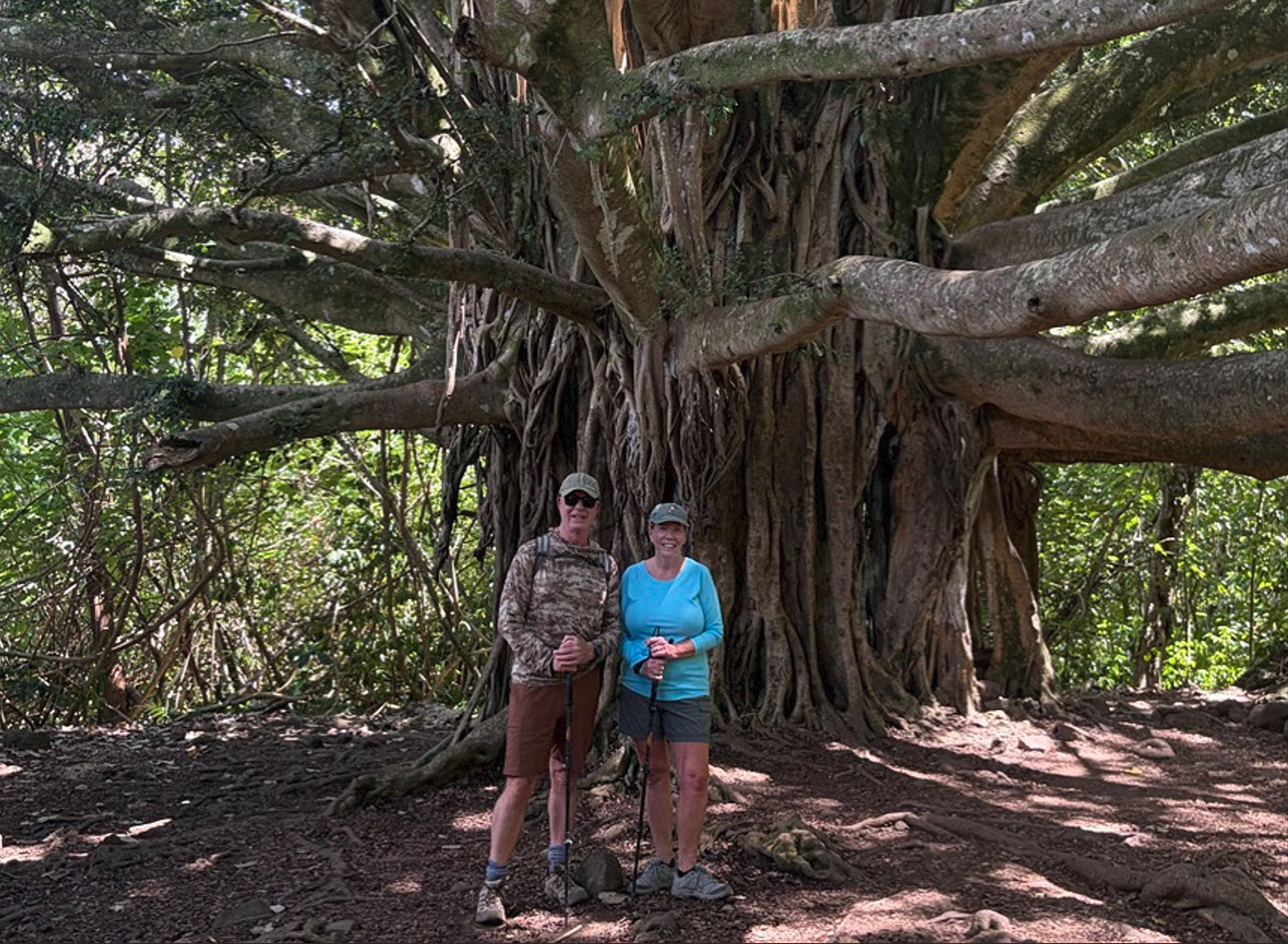Last year I hiked Haleakalā crater, and here is my report from that trip. At the end I said I was going to do this again, but the other way around. Well, I didn’t go the other way around, but I added about 2.5 miles inside the crater, going all the way to Kapalaoa hut, and then looping around through the heart of the crater on the way out. This extended the trip to 13.87 miles and the hike took me 7 hours and 4 minutes. The total descent was 3,454 feet, and the total ascent was 1,804 feet, pretty much all of that during the last 90 minutes on the way out, what I call “the switchbacks.” The high point at the top of the mountain was 9,771 feet (2,978 meters). The low point, at the bottom of the switchbacks, was 6,715 feet.
My pictures and my narration of this trip is somewhat repetitive of what I showed in May 2024, but I can’t help it. The absolutely stunning beauty of this landscape, and the epic-ness of the hike just overwhelms me, and I can’t help myself. I have to show it off. So forgive the repetitive information – it’s new every time for me.
Here is the map of the hike. Red colors are indicative of fast hiking, blue are slow. I started at the green arrow and ended after the switchbacks at the red bubble. The Kapalaoa hut was at the rightmost point.

Trisha dropped me off at the top of the mountain and she took a selfie for the good-bye. She’d pick me up 7 hours later at the Halemau’u Trailhead.

Before I left, she took one more picture of me at the start. The shortest way to Halemau’u is 11.2 miles, but I’d take a 14 mile route.

Looking down into the crater from the rim is always breathtaking. The crater is gigantic. If you look to the left of the picture, you see clouds below, and in the distance, the blue is the Pacific Ocean, 10000 feet below us.

Here is another view looking east over the crater. The morning sun is reflected in the distant ocean. On the right side you can see the start of the Sliding Sands trail as it makes its way down.

An hour and a half later, I am in the bottom of the crater. It’s at about 7,200 feet elevation, and it’s basically completely flat, surrounded by the rim 2,500 feet higher, in all directions.
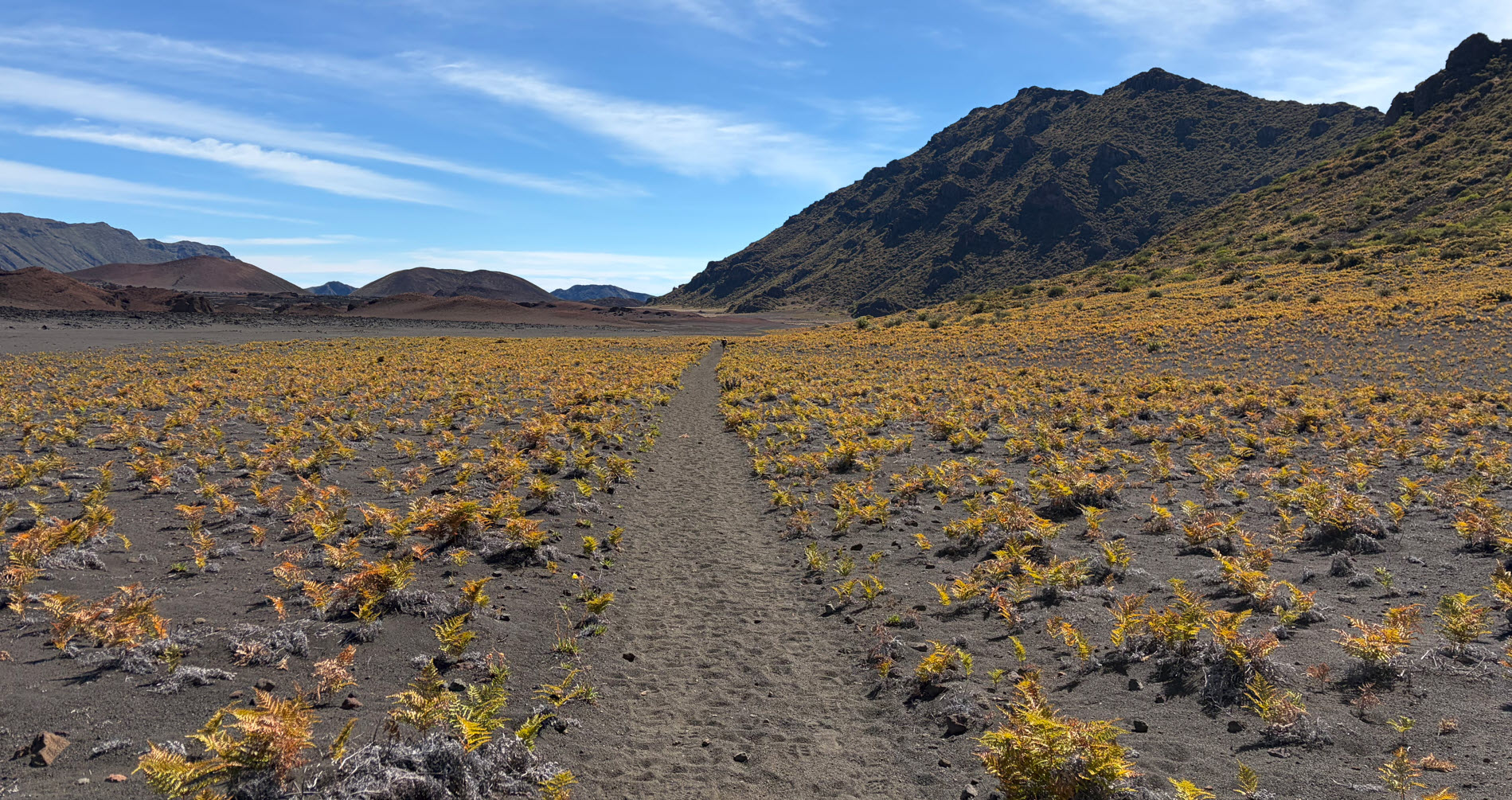
The state bird of Hawai’i, the Nene, originally came to the islands many thousands of years ago from Canada. They are related to Canadian geese, but have evolved to thrive in the Hawai’ian environment. They are surprisingly unafraid of humans, probably because hikers have fed them occasionally (even though they should not).

Much of the interior of the crater reminds me of a moonscape. However, there are some hardy survivors here and there, growing out of sheer gravel.
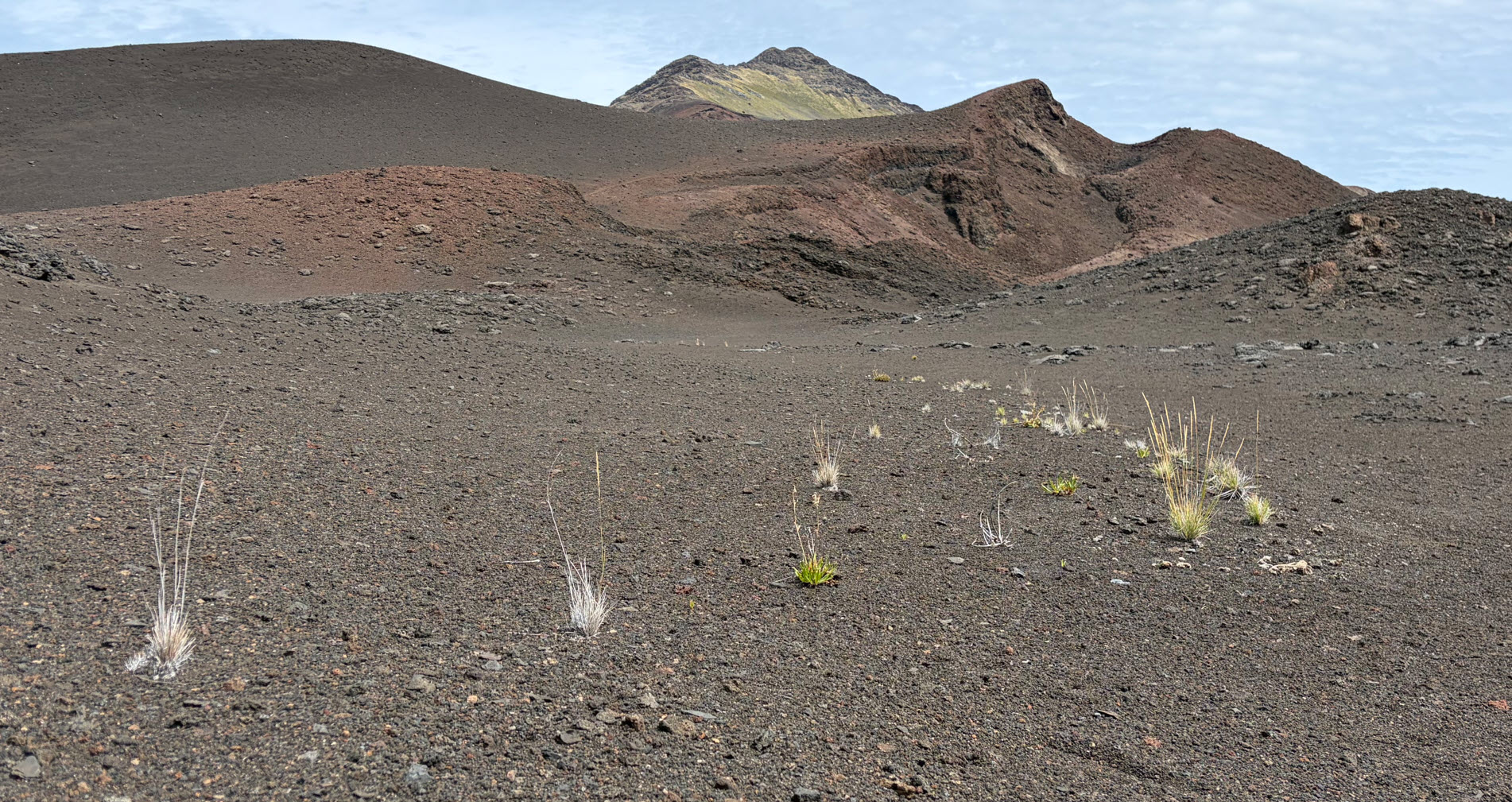
The Haleakalā silversword is a strikingly beautiful plant which is only found on the island of Maui at elevations above 6,900 feet on the summit depression, the rim summits, and surrounding slopes of the Haleakalā crater. It has been a threatened species since it was classified on May 15, 1992. Prior to that time, excessive grazing by cattle and goats, and vandalism inflicted by people in the 1920s, had caused its near extinction. Since strict monitoring and governmental protection took effect, the species’ recovery is considered a successful conservation story.

The plant has white leaves which feel rubbery to the touch. They eventually grow a stalk, bloom, and then die. This is the only place in the world where these plants exist.
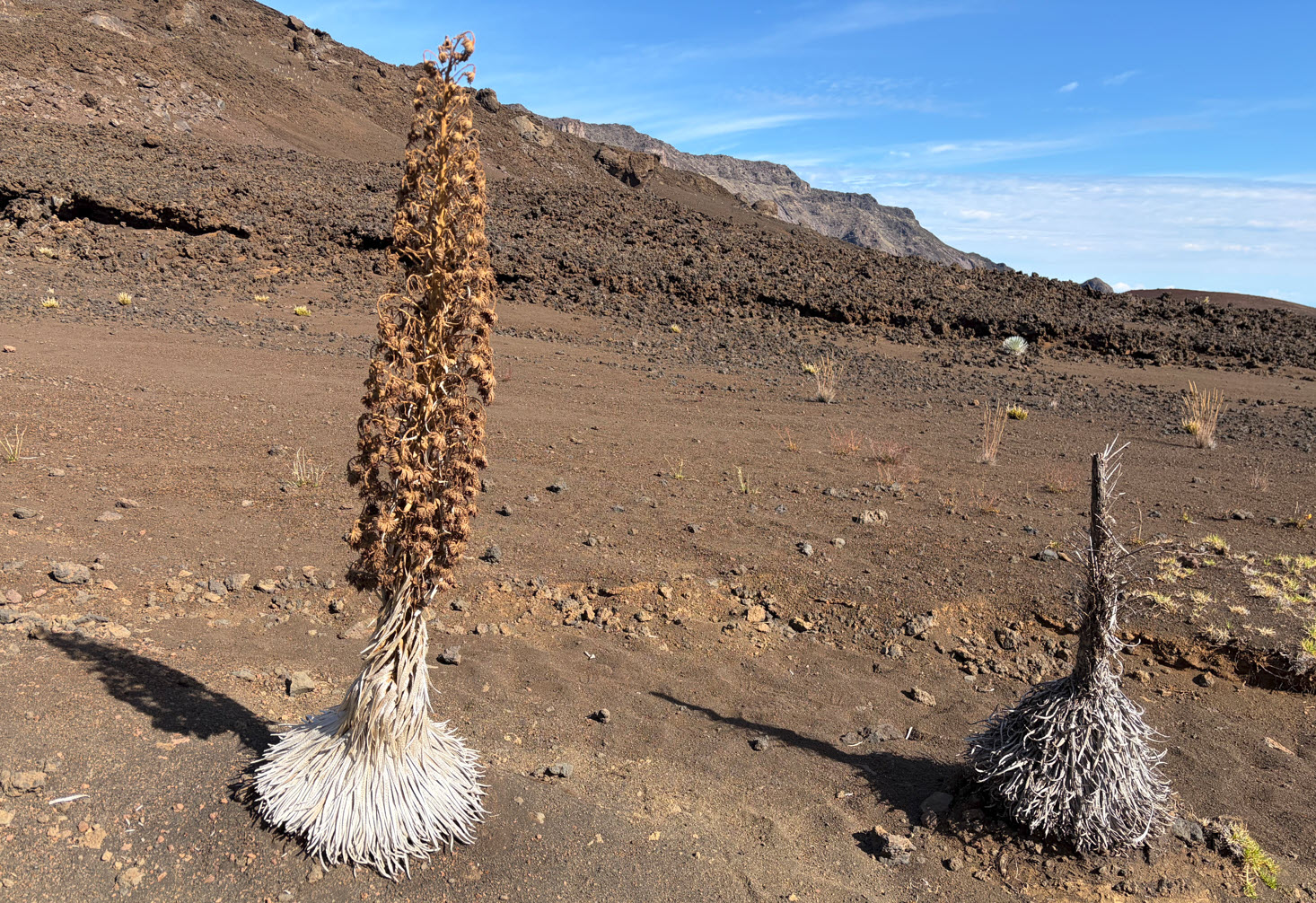
Hiking in the crater, I am awestruck by the harsh beauty.

The cinder cones in the middle of the crater often show many different colors, very reminiscent of our hike in Iceland in 2024. The only difference between Iceland and here is that in Iceland, there are geysers of hot water, bubbles of popping mud, and pungent sulfur smells along with the colors. Here on Haleakalā, it’s only the colors. The most recent volcanic activity on Haleakalā is estimated to have occurred sometime between AD 1480 and 1600.

Here is another view of the colors in the crater. Note the red box in the distance and then look at the next photograph below, where I enlarged that view.
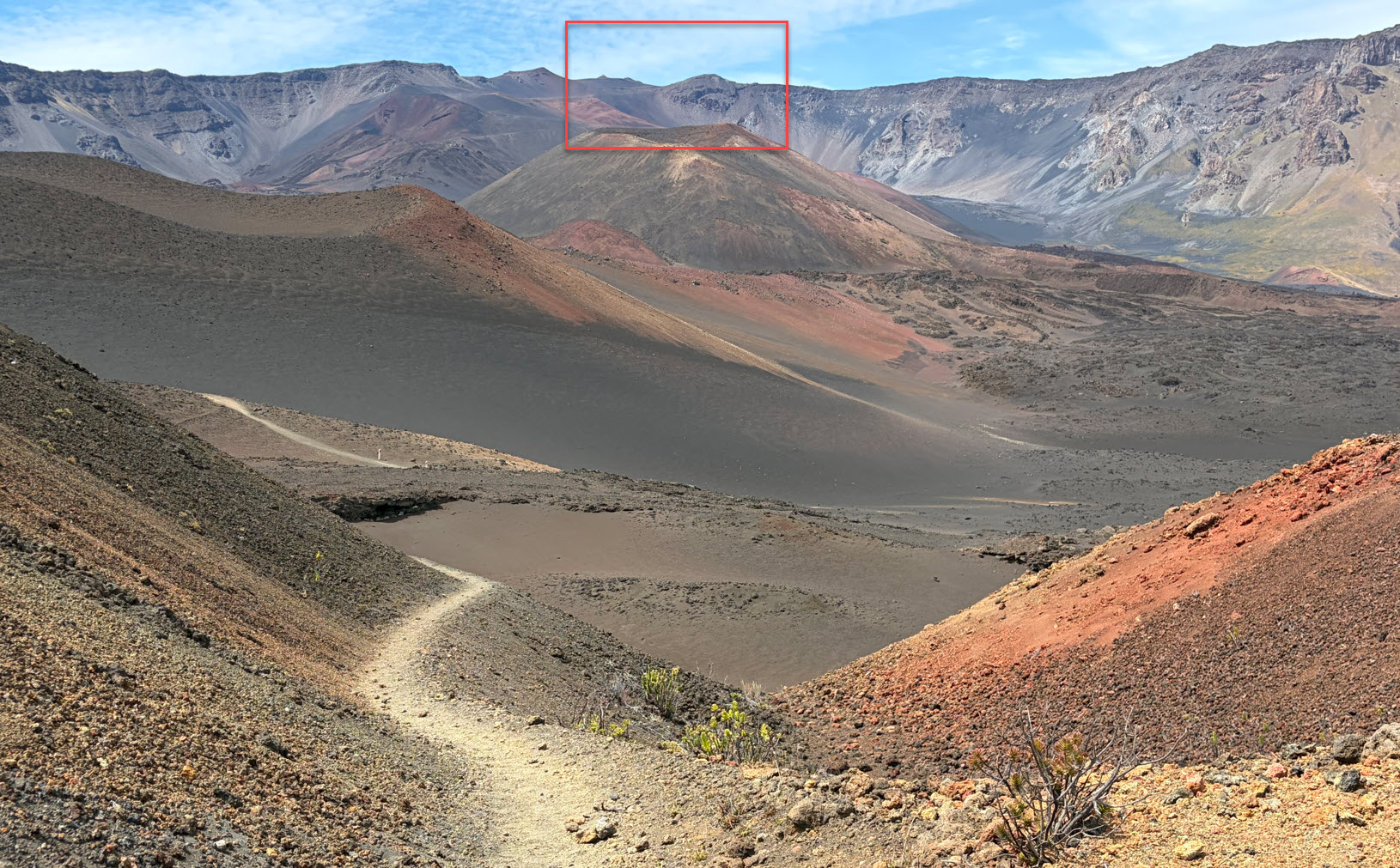
Here you can see where I came from. The red arrow points to one of the telescopes visible on the summit. The blue arrow points to the beginning of the Sliding Sands trail, the point where I took one of the pictures above. And on the right by the green arrow, that nubby is the visitor center on the rim. That’s how far most visitors to Haleakalā get.

Around the cones, we can find some interesting shapes. For instance, this is a huge gravel funnel, probably a hundred yards across. One of the strange things in the crater is that distances and sizes of features are hard to estimate, since there are no reference points.

Not far from the funnel there was this area with a sturdy steel fence around it. I wondered what it was. It is known as the “bottomless pit.” It used to be thought as bottomless, but they now know it’s 65 feet deep. In Hawaiian legend, the bottomless pit is associated with tales of Pele, the volcano goddess, and her siblings. Some stories say that her sister attempted to use that opening to reach down and cool or put out Pele’s fires below. Some older legends said that Hawaiians placed umbilical cords of Kaupo babies in this bottomless pit as a sacred custom.
I was in awe standing in front of a feature that has been part of the local legends for centuries, doubtless visited by generations of Hawaiians, throwing in their umbilical cords. And here I was alone, the only person in the universe at that time, nobody else around for many miles, staring down.

I leaned over the fence and pointed my phone down, afraid it might slip out of my hands, and took this picture. This gaping hole is about 10 feet across and there is no way to see the bottom. This is how close I dared to get.

As I crossed the crater, the moonscape kept my attention, or shall we call it the “mars scape” since the picture below looks like something we see on YouTube taken by the panoramic camera on the rover on Mars. The rocks in the foreground, the untouched sand, the dunes, the colors. The only thing that reminds me I am on Earth is the blue sky.

Finally, after about 10 miles of hiking, I arrived at the Holua hut and I took a selfie to honor my friends Mike and Susan, who where here last fall per my recommendation. They hiked down the switchbacks, arrived at this hut at the 4-mile point, and then turned around from this spot. Here’s to Mike and Susan.
I stopped here to eat my last sandwich before the final ascent back out up the switchbacks.
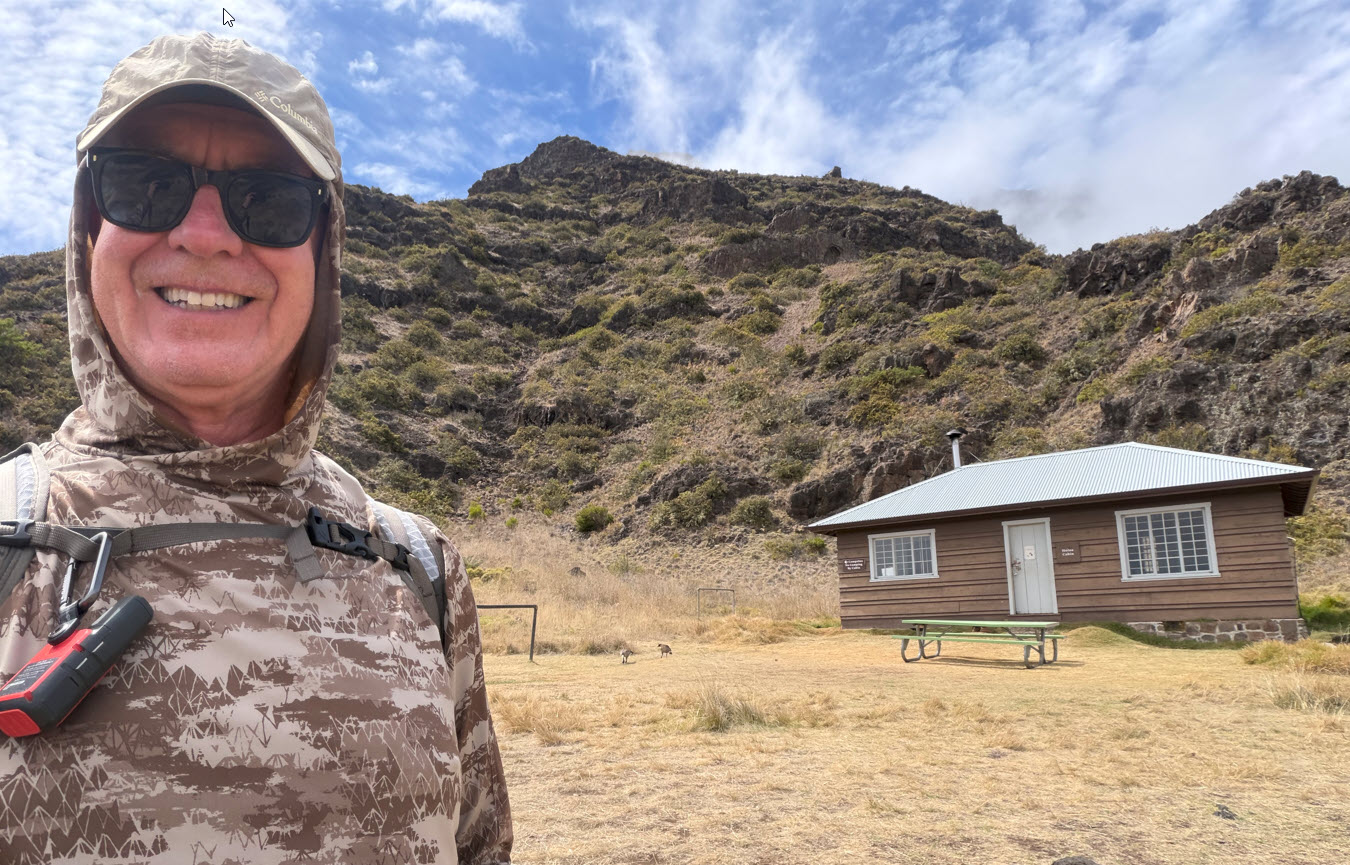
During this entire trip, I saw very, very few people. It’s almost scary, but there is nobody in the crater. I was mostly alone, except for one other hiker who I ran into early on the way down. We exchanged a few words while I was sitting on a log having my breakfast, and then he went ahead of me. I didn’t see him again for hours, and I thought he’d be way ahead of me.
Well, he wasn’t, and when he caught up with me just before the switchbacks he took several videos of me hiking in front of him, as he caught up to me. I didn’t know this was going on.
Here is a video he shot of the surrounding landscape, and about halfway through you can see that he hesitated when he spotted me and then zoomed in. That’s when he realized I was in front of him.
Here is the video he took just before he caught up with me.
Of course, since I mostly hike alone, I am not used to having pictures, or even videos of me during a hike.
As we clambered up the switchbacks, there was plenty of time to chat and get to know each other. To protect his privacy, I shall call him J.R. here:

Note the flipflops. This guy is a “badass hiker” and therefore just my kind.
In the following few pages there are a few pictures of me, all credit to J.R.
Here I am on one of the exposed ridges, with sheer drops of hundreds of feet on both sides.
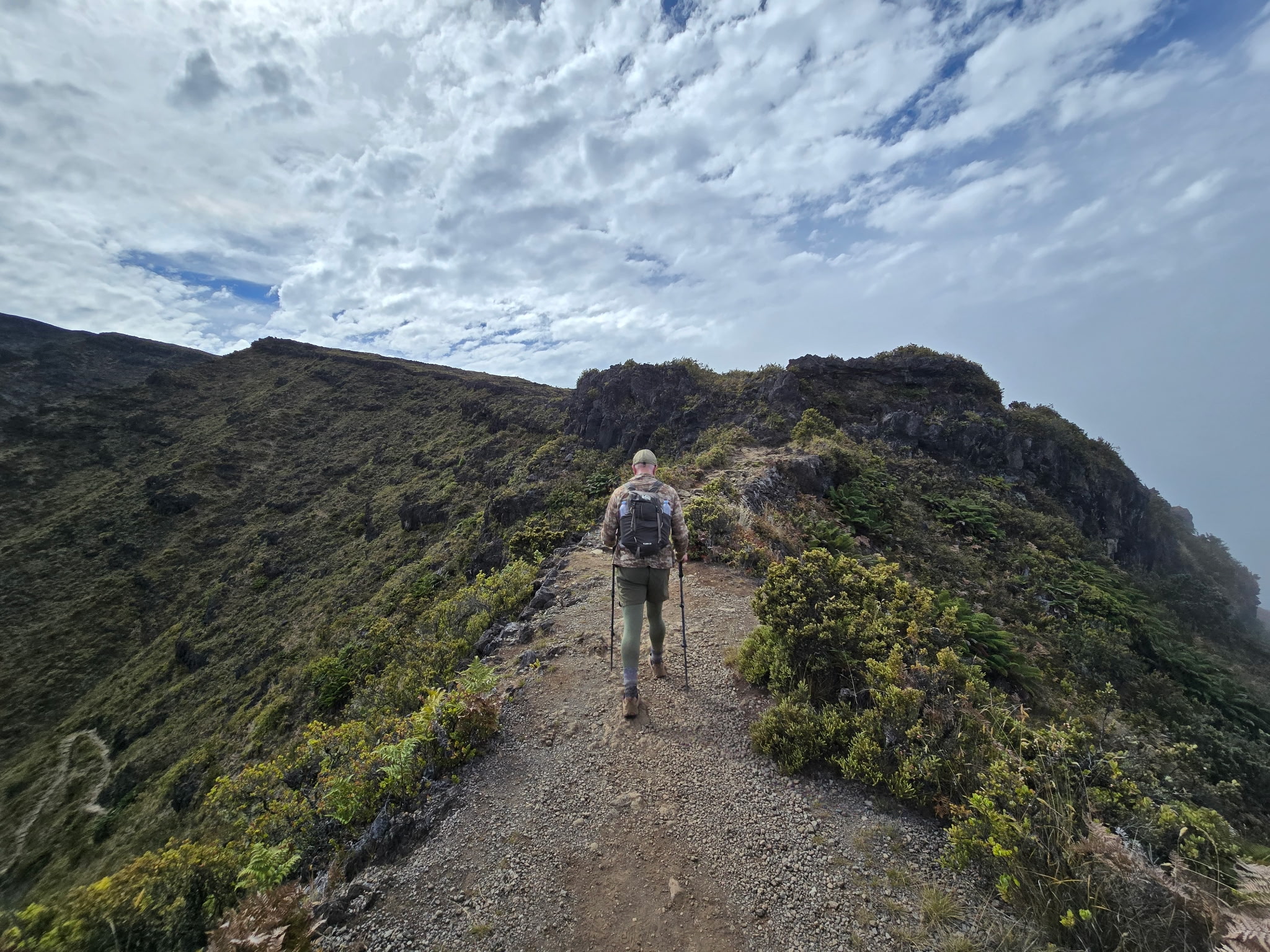
Here you can see how rocky and steep the trail is up the switchbacks.

Looking out, the clouds that enshroud the mountain are below us.
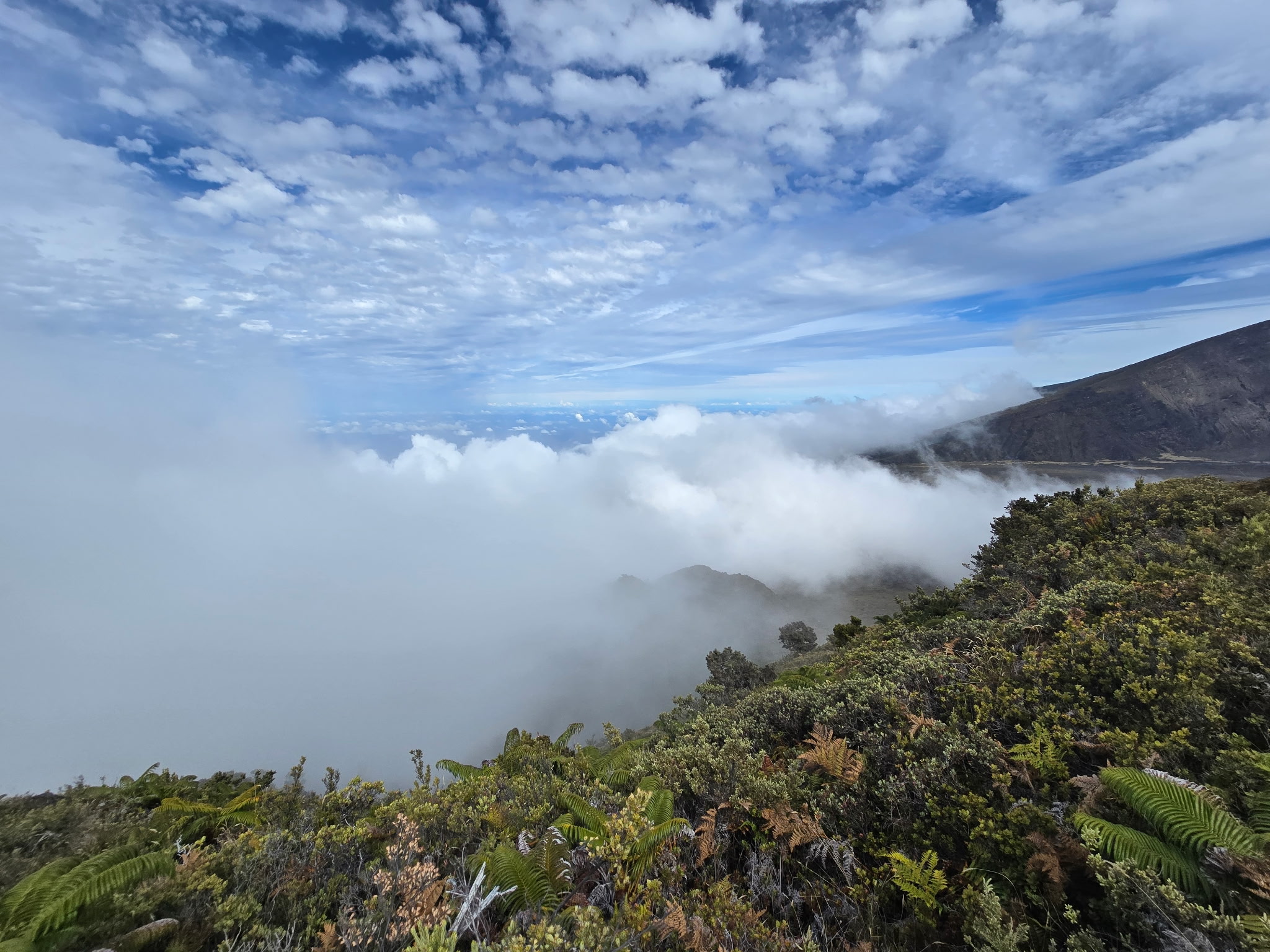
Sometimes they reach right up to us and feel like fog.
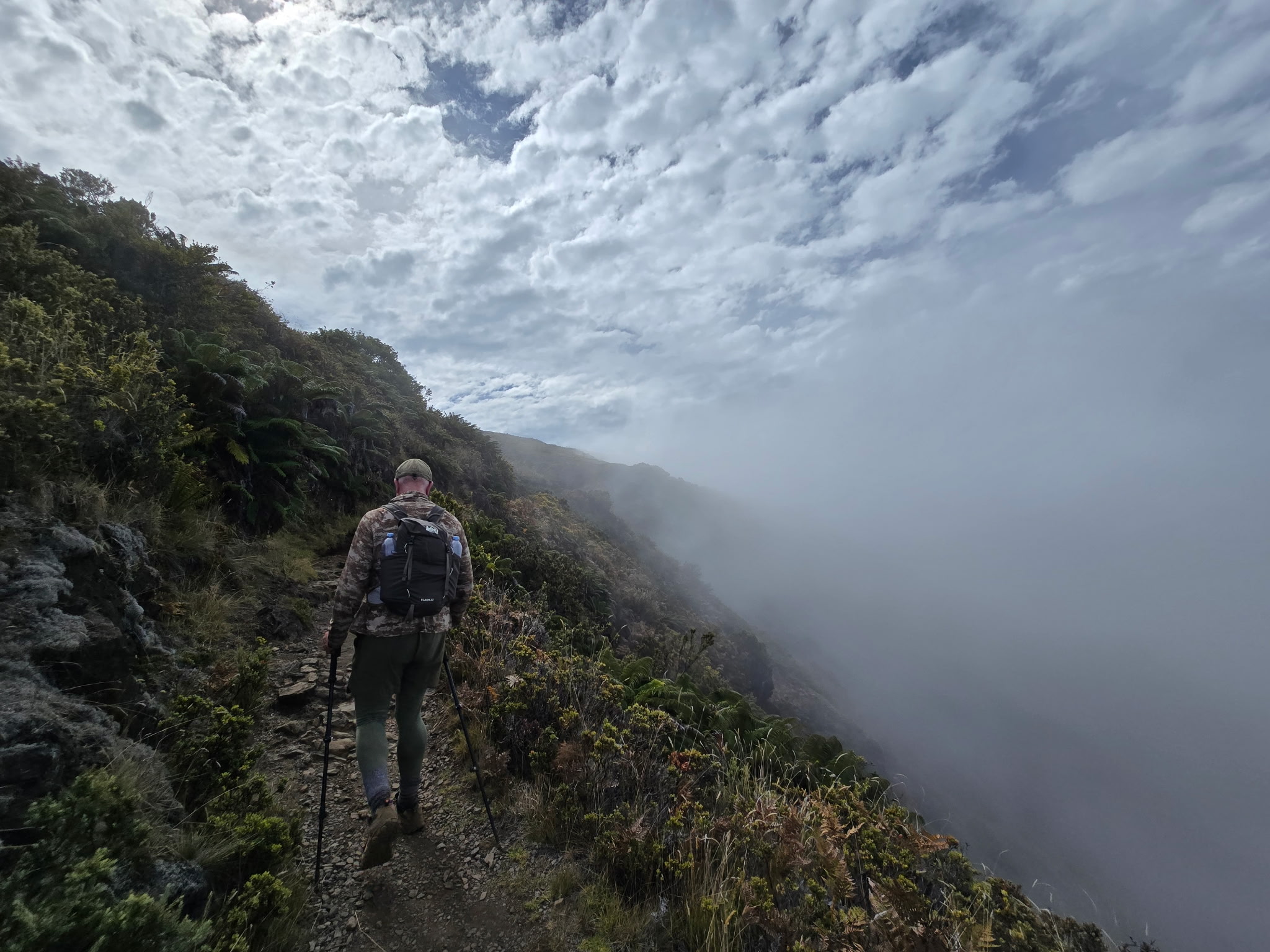
Here you see some of the switchbacks, and if you look carefully you can see tiny me about in the middle of the picture towards the right. You can click on the photo to zoom in.

And finally, after 7 hours and 14 miles, we arrived at the Halemau’u trailhead where Trisha waited for me and took this picture. It was beer’o’clock.
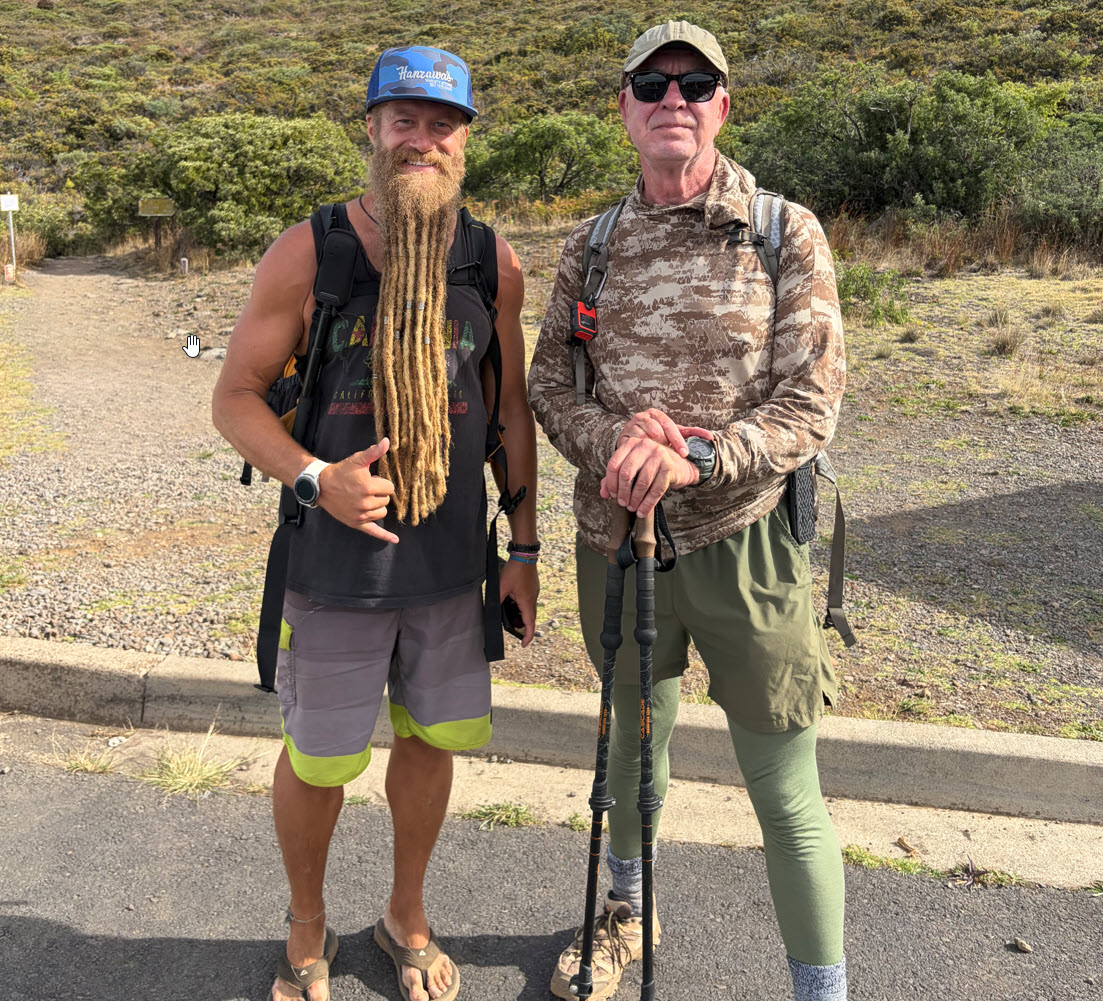
Thanks for sharing your pictures, J.R. and may we meet up for another awesome hike one day!
Like this:
Like Loading...
